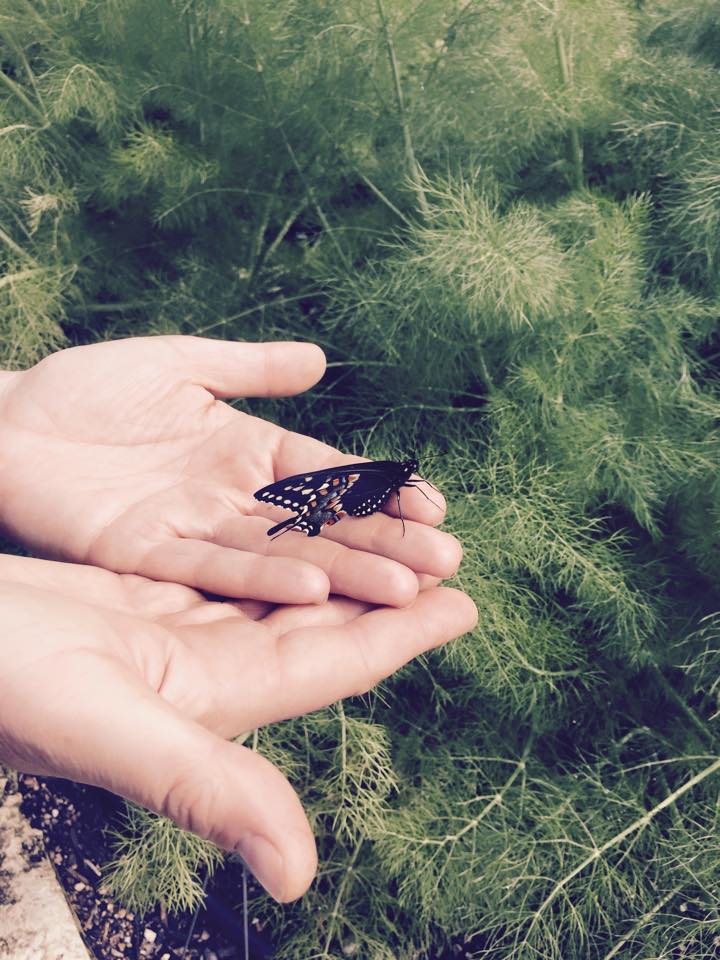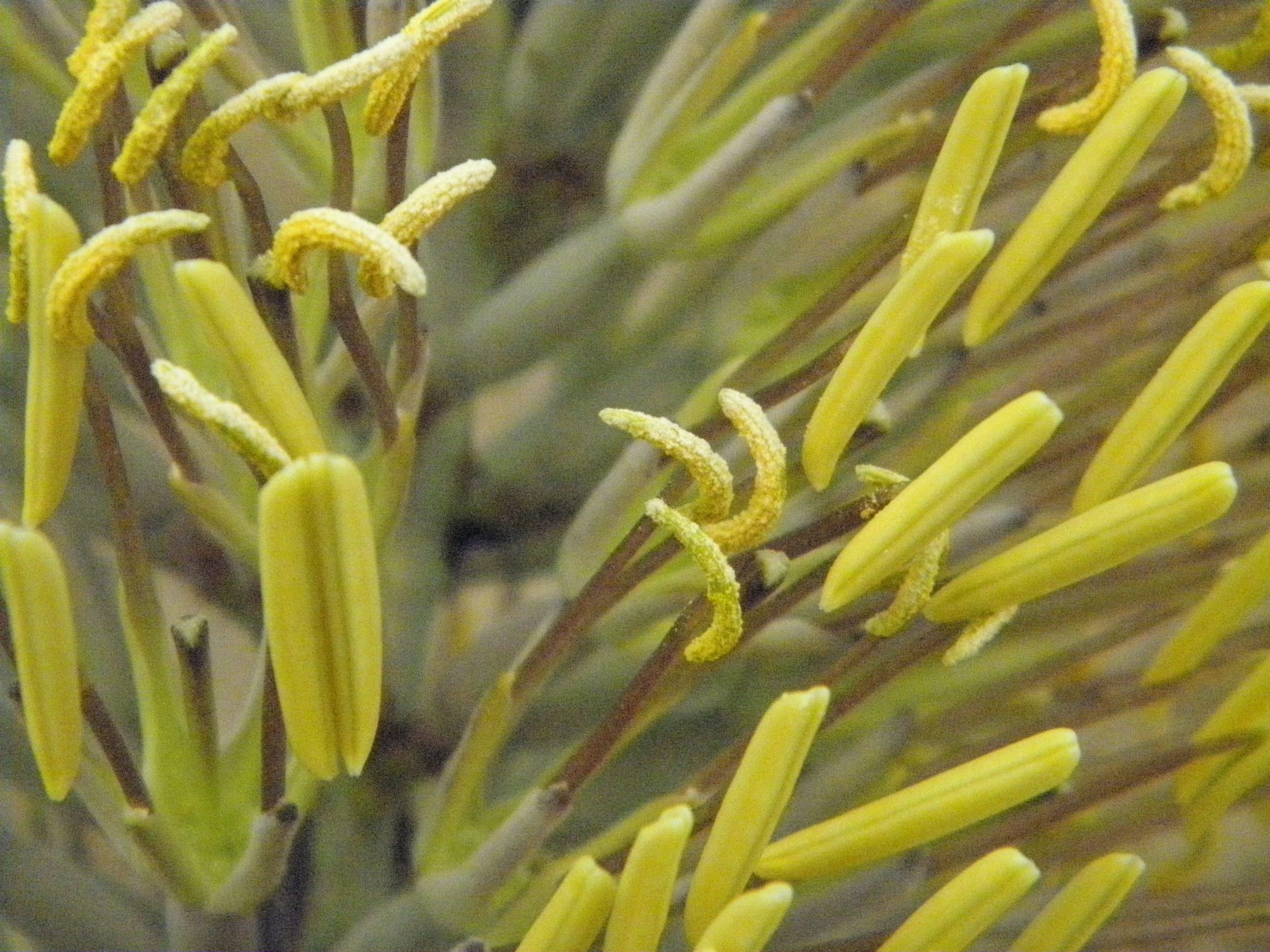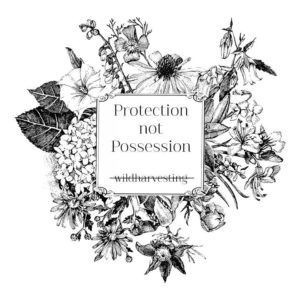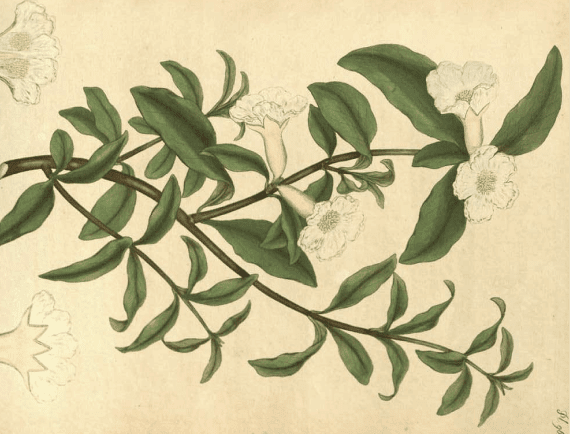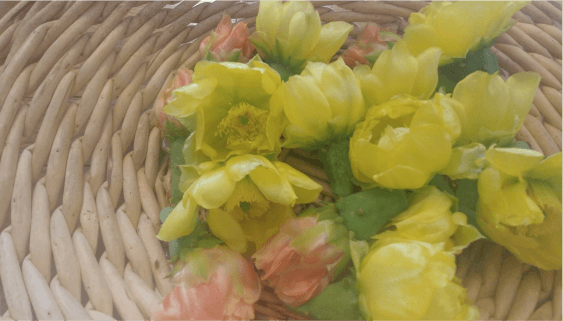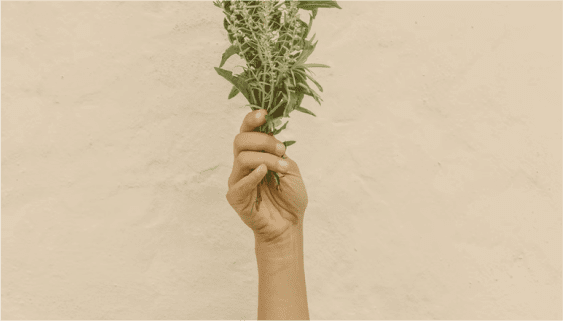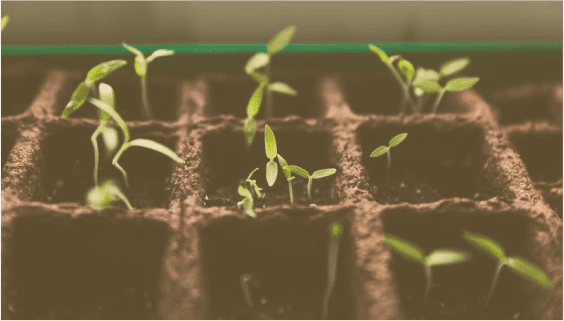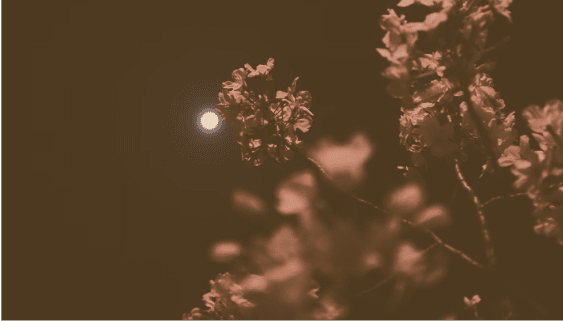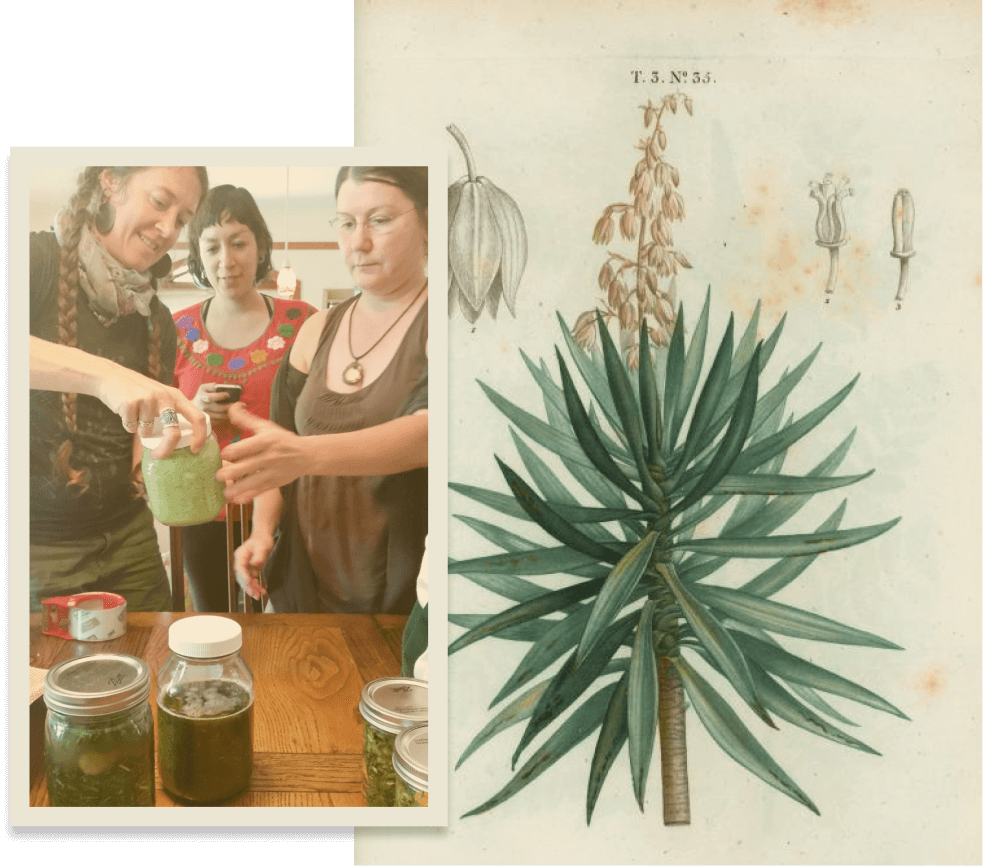When I first began forming relationships with plants, I fell in lust with the idea of being able to identify and harvest wild plants. In the mid 90s, I decided to wholeheartedly pursue this passion. Since then, I sought out teachers all over North America to teach me not only how to identify, but how to harvest. It felt like the ultimate communion with nature, something primal. I also fell head over heels in lust with various humans all the time, thinking each time was somehow better, or more. What I have learned as I have grown a little older, is that a lot of the feelings I had about harvesting plants, and falling in lust with humans, were because I didn’t truly know or understand love. My passions were more of a primal lusting than true love. The communion I felt with nature or people was about connecting deeply, profoundly, and briefly, then moving on. Since then, I have fallen truly in love with the land, and another human. I have learned that love isn’t just about these intense, extreme passionate experiences, its also hard work. Its about sustaining your love. Its about having a relationship and commitment to something bigger than you. Its about the back and forth, giving and receiving.
It not just about a good fuck.
Lechugulla
A fuck, also implies there is consent, but then again being able to be able to decipher interspecies consent is another article for another time…..
When I first started teaching, I had focused on the idea of wildcrafting, because that’s how I first”fell in lust” with plant medicine. Botany porn (a Michael Moore descriptor) is real. Its hard not to get titillated as spring unfolds, and there is a riot of pollination and reproduction goes into full swing. As a deep ecologist, and radical environmental activist, I wanted to bring a little more sustainability into my work with plants I published an “Eco-Herbalist’s Manifesto” in the Earth First Journal in 2003 or so. I spent years developing curriculum around sustainable wild-harvesting . I put together the best things I had learned from both my western and traditional healers. I started teaching “weedcrafting” classes at conferences. Fact is, wilderness is disappearing at an alarming rate. Many scientists and intuitive people both agree that we may be on the precipice of a great shift. Many articles are coming out, warning of mass extinctions and major earth changes coming our way. In our short lives, its so hard to see these things, but if you were to make a chart that spanned a 1000 years and look at this time now, I truly wonder if in the future this time would stick out as significant. Its hard to really imagine that we are in the middle of a mass extinction. Its hard to really grasp that.
I went into the study of ecology 25 years ago, only to run away saddened by the fact that humans had already gone thru exploiting everything to where the peaks of any sort of harvest, had already been, and that many wild things were declining steeply. There are simply too many humans, and too many that have no clue, or have time or ability, or even care to live in any balance. No judgement here. I think that many people who have more than others also seem to look down on the lifestyles of those that don’t do things the way they do them. Judging that if someone doesn’t recycle, or eat organic food, they are somehow not as eco-friendly. There are simply too many complexities with class and privilege to look at things so simply. The question really is, how can you be a thoughtful person, and use critical thinking skills, not instruct others to do things a certain way. So, as much as I am analyzing, I am also looking at my own role, and what I need to do to be more in balance. To “walk in beauty” as the Din-e people would say.
Artwork by Carla Vargas of Yerba Nomadica
In my experience, I found that the few times I took people to harvest in the wilderness, my heart ached each time. I sat and thought a lot about it. I decided that we can make any sort of relationship with plants sexy and exciting. Wildcrafting trips were not for me. If we did go on a “wildcrafting” trip, then we would focus on stewarding, not making medicine. Taking people onto land that I didn’t have a lasting relationship with, and they certainly wouldn’t, and teaching how to harvest Native medicines, felt as violating to the plants as it was when Peoples cultures were taken, when their lands were taken. I feel now, like some of my mentors, that wildcrafting in wilderness areas, even with other humans that know the area may not be appropriate, if we are trying to cultivate sustainability and respect towards other cultures and the land in herbalism.
I have seen a great upswing in “foraging”. I see the words “ethical wildcrafting” used a lot now, but what does that mean? I truly understand the empowerment and lust that comes with this connection. I also understand that it may need a lot more thought and understanding before one decides to take something. As a trained botanist and ecologist, it took me 5 years of studying medicinal plants before I felt inclined to take with supervision in the wild. I come from a familial lineage from Europe that was taken by war and destroyed. Both sides were broken apart and many killed, they escaped to the U.S. and voila, I was the first to be born on this soil. There is no way to get my family back or my ancestral knowledge. I am new to North American soil. I have great reverence for those that have lineages that predate colonialism. It is so incredibly special. I certainly don’t want to offend their intimate connection to the land, and what I have learned from many of my friends who do have lineages here, is to be gentle. To be patient. To be kind and compassionate to all creatures, and to think before you take.
Nature is not your grocery store. She is not here to be commodified, objectified, and fetishized. She is your Mother, and needs respect.
It is no mistake that the Earth embodies the Sacred Feminine in many cultures. As feminists and environmentalists, I ask everyone going out to go “forage” if this is respectful. What are you giving back? Why are you foraging? Some would even go as far as to say that taking from the wild is a sort of “neocolonialism”. I again, don’t want anyone to feel pointed at. I want them to think. Is it appropriate to take random people who find you on the internet to a wild space to go harvest? Is it appropriate to travel to a wild space and harvest? Do you have permission to teach such things or to be there? Maybe it is, and maybe it isn’t.
In my own practice, I have rules for my harvesting, like, never touch a plant in the wild unless you make a long-term commitment to come back year after year to steward the stand. Use the invasive weeds first. Only take what you can use that year. Harvest size depends on the situation…Is it a rescue or is it in a wild space? Etc etc. My rules are my own and what I teach when I work with students. They aren’t necessarily correct, but I have definitely thought long and hard about them. I have also made mistakes. No one is more special or more gifted than anyone else when it comes to what they deserve because they have knowledge. It is my opinion that no forager should feel that they have the special right to enter a preserve and take just because they know the plant. A preseve is there to preserve the plants. Also, some of our most delicate areas are around big cities, where those with a little bit of information after taking a foraging class or reading something online, swoop down on the remaining wild populations of glamorous, hard to find, Native medicines and gather. It is my hope that maybe we can do a little more thinking, listening, and nurturing around our wild spaces and wild plants. As spring progresses and I see such trips manifest on social media, making it easier and easier for people to get to far away places and take, please consider that the wild nations, First Nations and Indigenous Cultures, or even just the local imported herbalists who have made that space home, may have different feeling about your travels into the spaces they steward. Please think before you take.
Maybe instead of fucking plants, make love with them!
Nicole Telkes 2018
